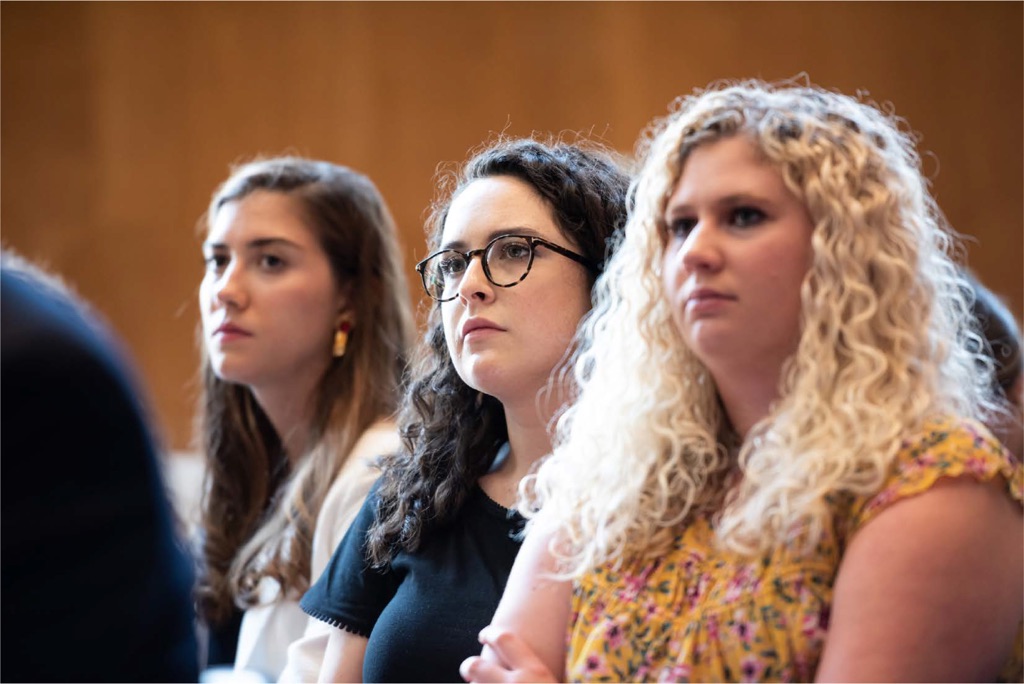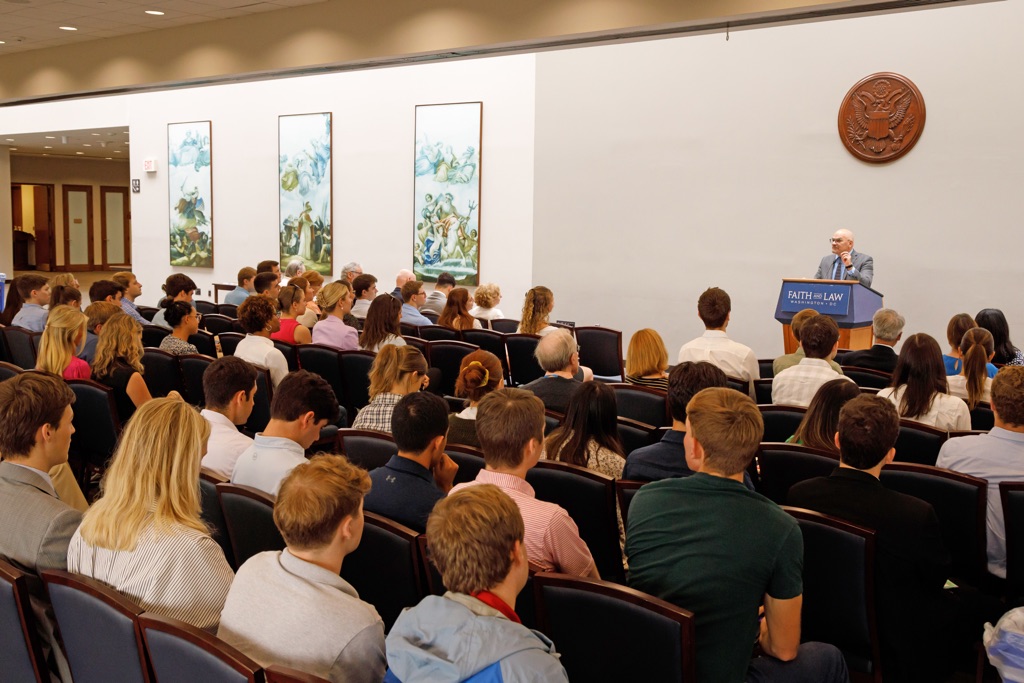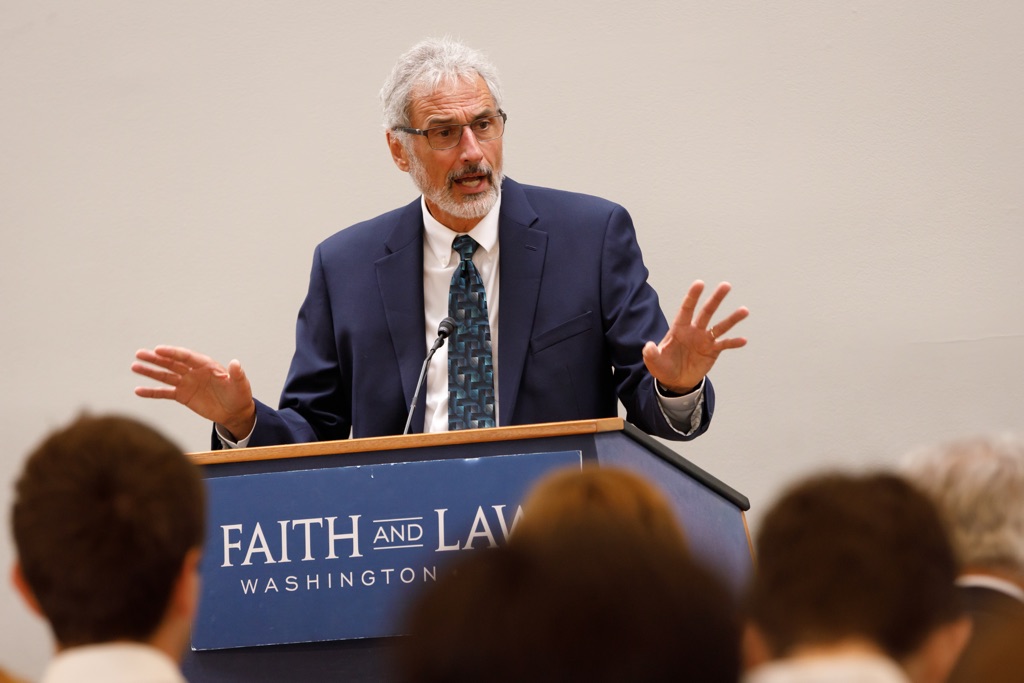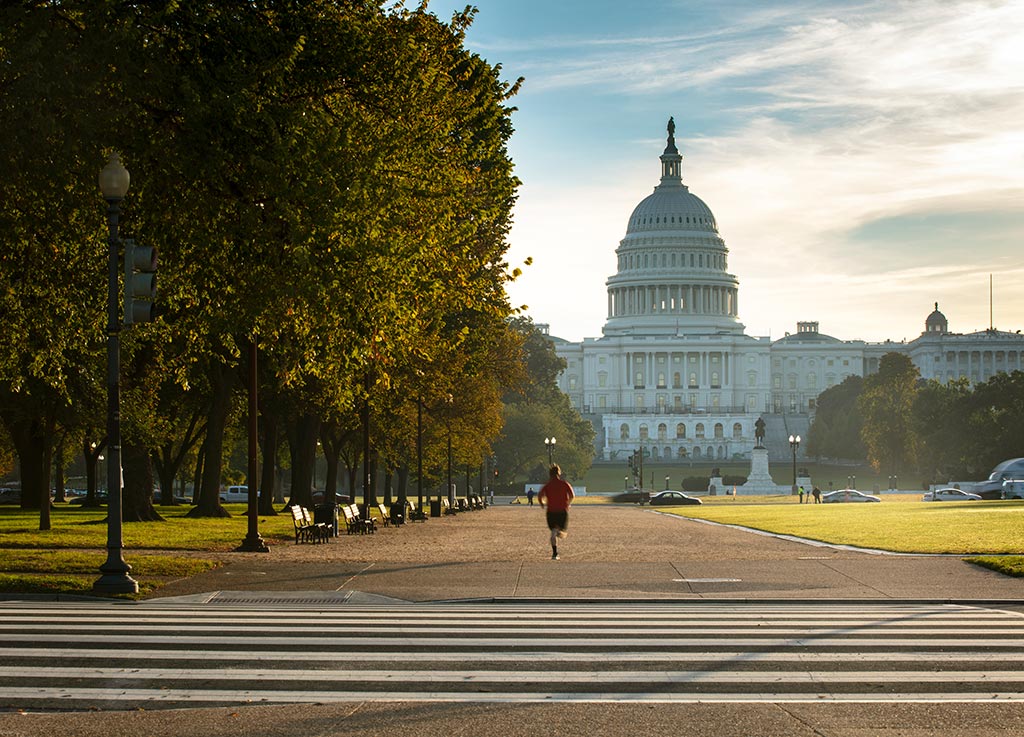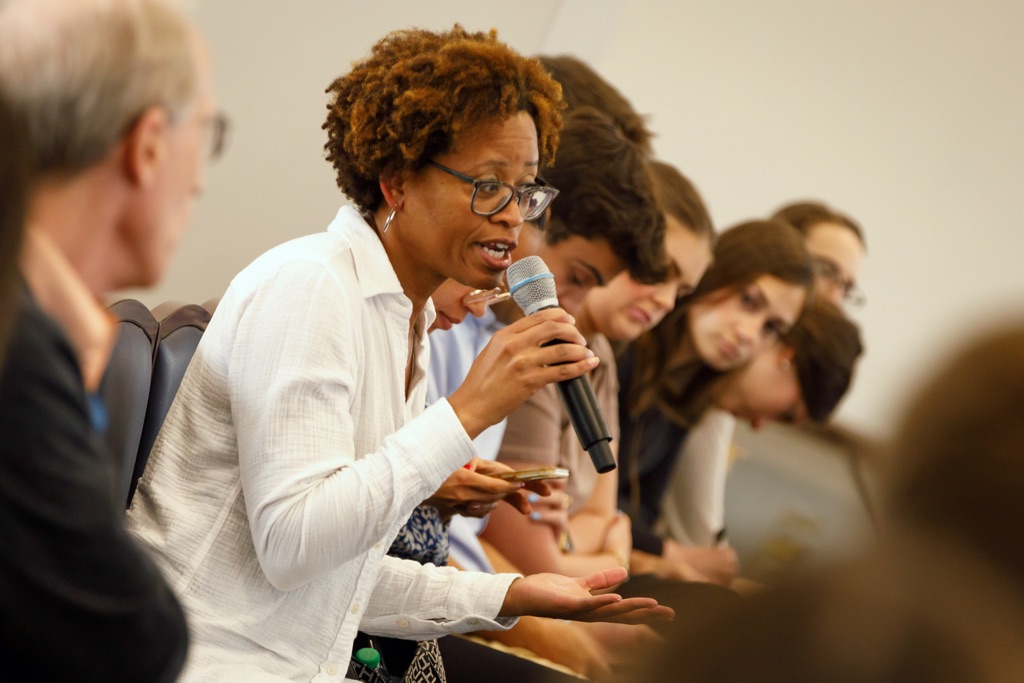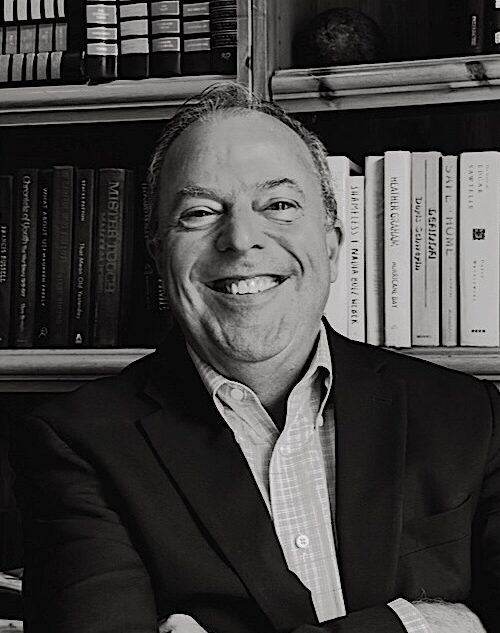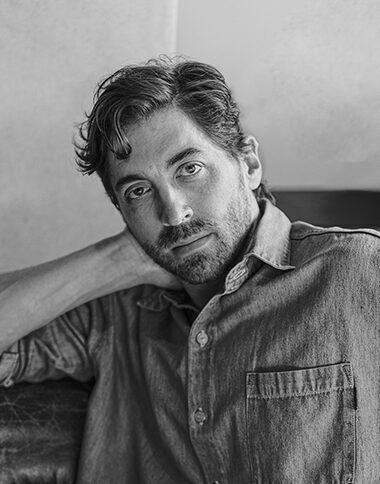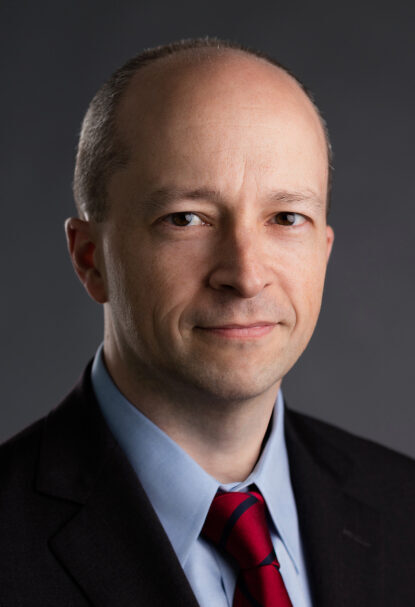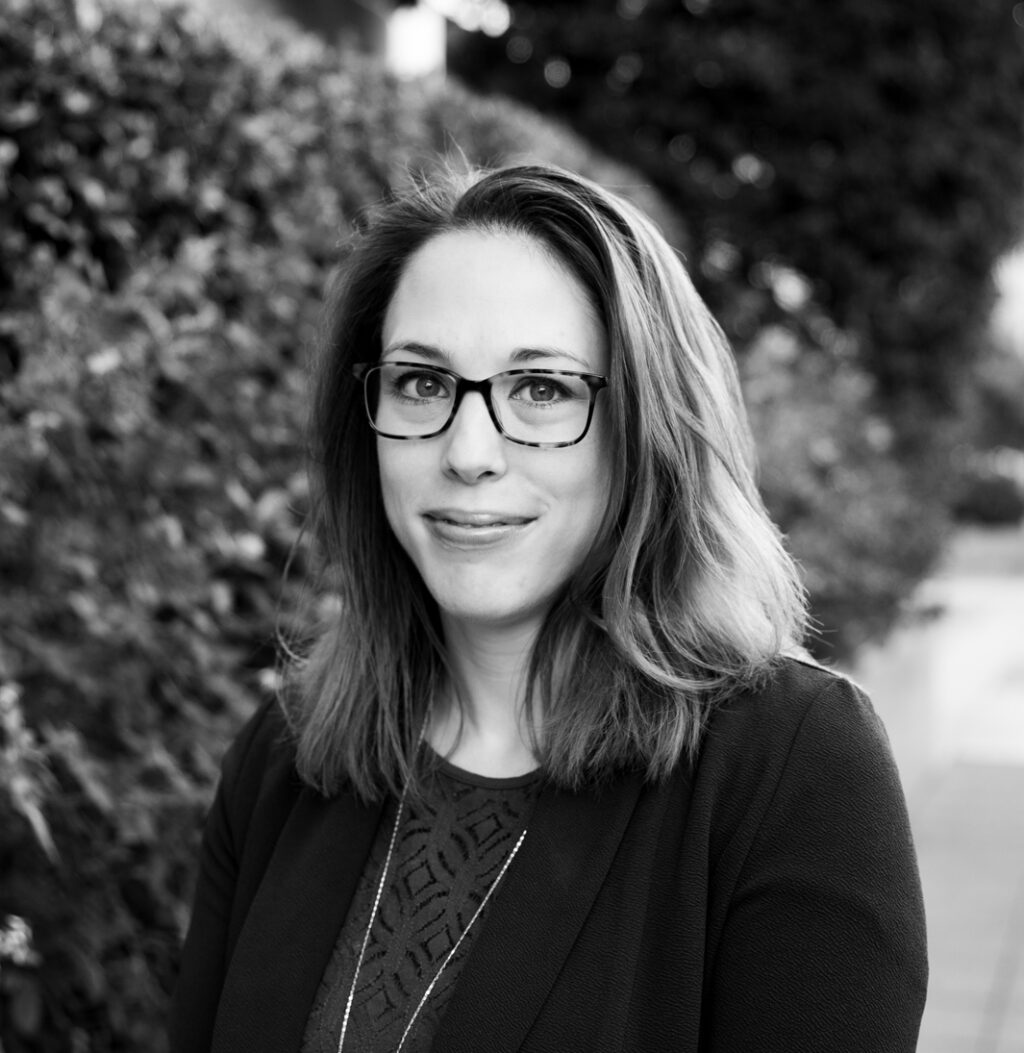
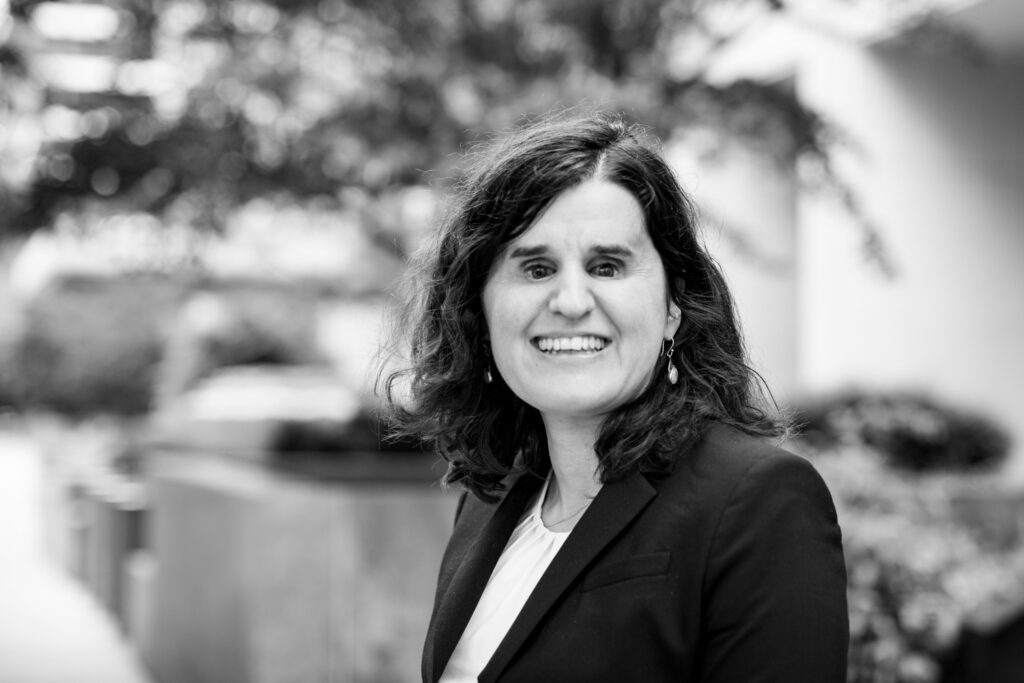
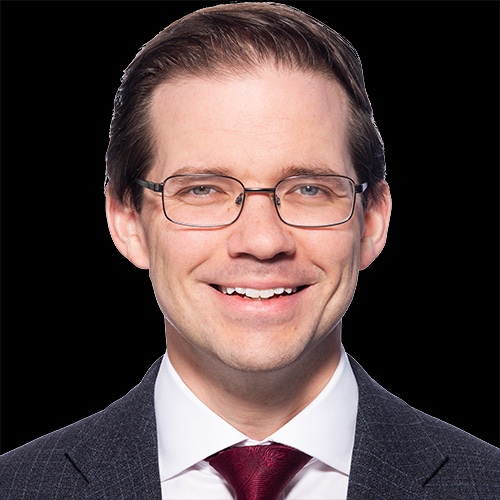
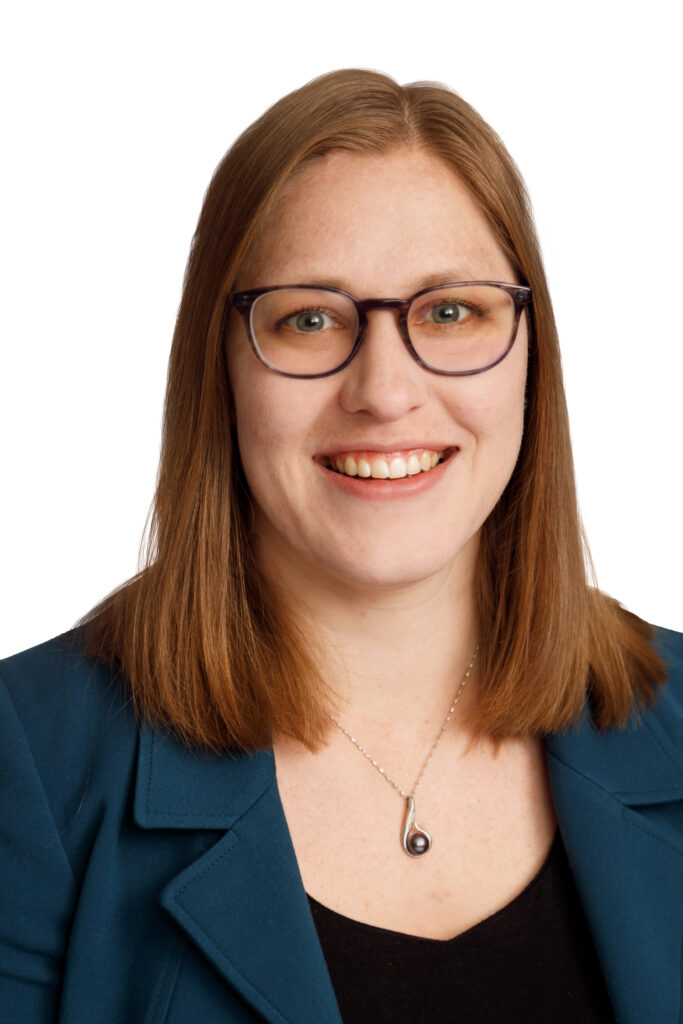
Religious Liberty and Regulations: Implications of Overturning Chevron
Federal agencies have often used the regulatory process to impose mandates that infringe on key rights of religious exercise and conscience. But this spring, the Supreme Court overturned the longstanding doctrine of congressional delegation known as Chevron deference. What does that mean for congressional authority and how is religious freedom impacted by agency rules?
Our panel featuring Laura Wolk Slavis of Becket, Paul J. Ray of the Heritage Foundation, Rachel Morrison of the Ethics and Public Policy Center and Amy Vitale of Becket, discussed this question—and how congressional staff can effectively engage the regulatory process—through the lens of the Pregnant Workers Fairness Act.
Laura Wolk Slavis joined Becket as counsel in 2022. Her work at Becket has included federal litigation at both the trial and appellate level.
Prior to joining Becket, Laura worked as an associate at Kirkland & Ellis LLP, where she focused her work on complex commercial litigation, administrative law, and constitutional law, including religious liberty issues. In addition to her experience in private practice, Laura has had the privilege of clerking for the Honorable Clarence Thomas on the Supreme Court of the United States, the Honorable Thomas M. Hardiman on the U.S. Court of Appeals for the Third Circuit, and the Honorable Janice Rogers Brown on the U.S. Court of Appeals for the District of Columbia Circuit.
Laura earned her J.D. summa cum laude from Notre Dame Law School in 2016, where she received the Award for Outstanding Achievement in the Program of Study in Public Law and served as the Law Review’s Federal Courts editor. She received her B.A. in psychology from Swarthmore College in 2009, where she graduated Phi Beta Kappa.
When she’s not thinking about the law, Laura enjoys learning about wine, going for a run, and discovering the latest great novel.
The Honorable Paul J. Ray leads The Heritage Foundation’s work on regulatory and economic policy as Director of the Thomas A. Roe Institute for Economic Policy Studies.
Ray brings to the role wide experience at the highest levels of government and private practice, including service as the Administrator of the Office of Information and Regulatory Affairs—the federal “regulations czar”—within the White House’s Office of Management and Budget, to which position he was confirmed by the U.S. Senate in January 2020. As Administrator, Ray supervised the review of hundreds of regulations and led federal efforts on regulatory reform.
Before his time at OIRA, Ray served as counselor to the U.S. Secretary of Labor and an attorney specializing in administrative appellate law. He began his legal career with clerkships for Judge Debra Ann Livingston of the United States Court of Appeals for the Second Circuit and for Justice Samuel A. Alito of the United States Supreme Court.
Ray’s research focuses on administrative law and policy, the American Founding and constitutional order, and political philosophy, with a special focus on subsidiarity and the common good. He is a frequent speaker in Washington and around the country on the federal regulatory system.
In addition to his work at Heritage, Ray is a member of the Executive Committee of the Federalist Society’s Administrative Law Practice Group. He also serves on the Board of Innovations in Peacebuilding International, which promotes peaceful, ground-up solutions in war-torn regions.
Ray is a graduate of Harvard Law School, where he served on the Harvard Law Review, and holds a bachelor’s degree from Hillsdale College.
Rachel N. Morrison is a Fellow at the Ethics and Public Policy Center, where she directs EPPC’s HHS Accountability Project. An attorney, her legal and policy work focuses on religious liberty, health care rights of conscience, the right to life, nondiscrimination, and civil rights.
Before joining EPPC, Ms. Morrison served as an Attorney Advisor and Special Assistant to General Counsel Sharon Fast Gustafson at the Equal Employment Opportunity Commission (EEOC), where she focused on religious discrimination issues and was a member of the General Counsel’s Religious Discrimination Work Group. Before that, she served as Litigation Counsel for Americans United for Life and as a Constitutional Law Fellow at the Becket Fund for Religious Liberty, defending the right to life and religious freedom for all. She also clerked on the U.S. Court of Federal Claims.
Ms. Morrison’s legal analysis has been published in the Seton Hall Law Review, the Pepperdine Law Review, and the Ave Maria Law Review, as well as various other print media outlets.
Ms. Morrison earned her J.D., magna cum laude, from the Pepperdine University School of Law, where she was elected to the Order of the Coif and served as an editor for the Pepperdine Law Review and the Harvard Journal of Law & Public Policy. She received her B.A. in Mathematics and Speech Communication, summa cum laude, from Whitworth University (Spokane, WA). She is a member of the District of Columbia and the Washington State bars.
Amy Vitale joined The Becket Fund for Religious Liberty in 2016 to develop and manage the firm’s government affairs work. As Government Affairs Counsel, she tracks federal legislation and regulations that impact the religious exercise of Becket’s clients.
Prior to joining Becket, Amy served as Legislative Counsel to several Members of Congress, supporting their work to protect religious freedom for people of all faiths. These Member efforts resulted in the successful passage of legislative language protecting religious exercise, effective oversight of federal agencies and the military branches, and regular amicus engagement before the Supreme Court.
Before working at Becket, Amy practiced law in Lancaster, Pennsylvania. She graduated from Houghton College (now University) with a degree in political science. In law school she was a member of the Regent Law Review, the Moot Court Board, and was a successful national moot court competitor. Her family is her greatest joy.
Faith and Law is a non-profit ministry started by policy makers and for policy makers.
